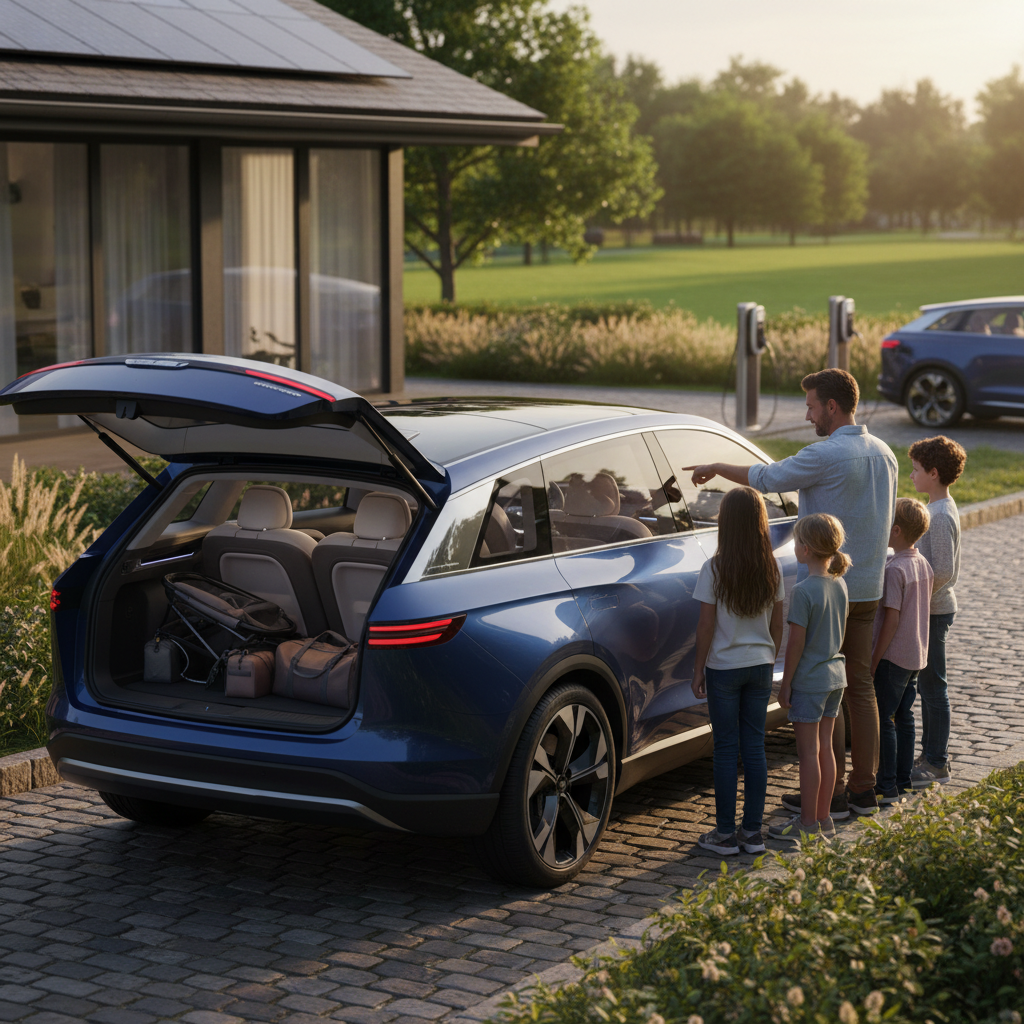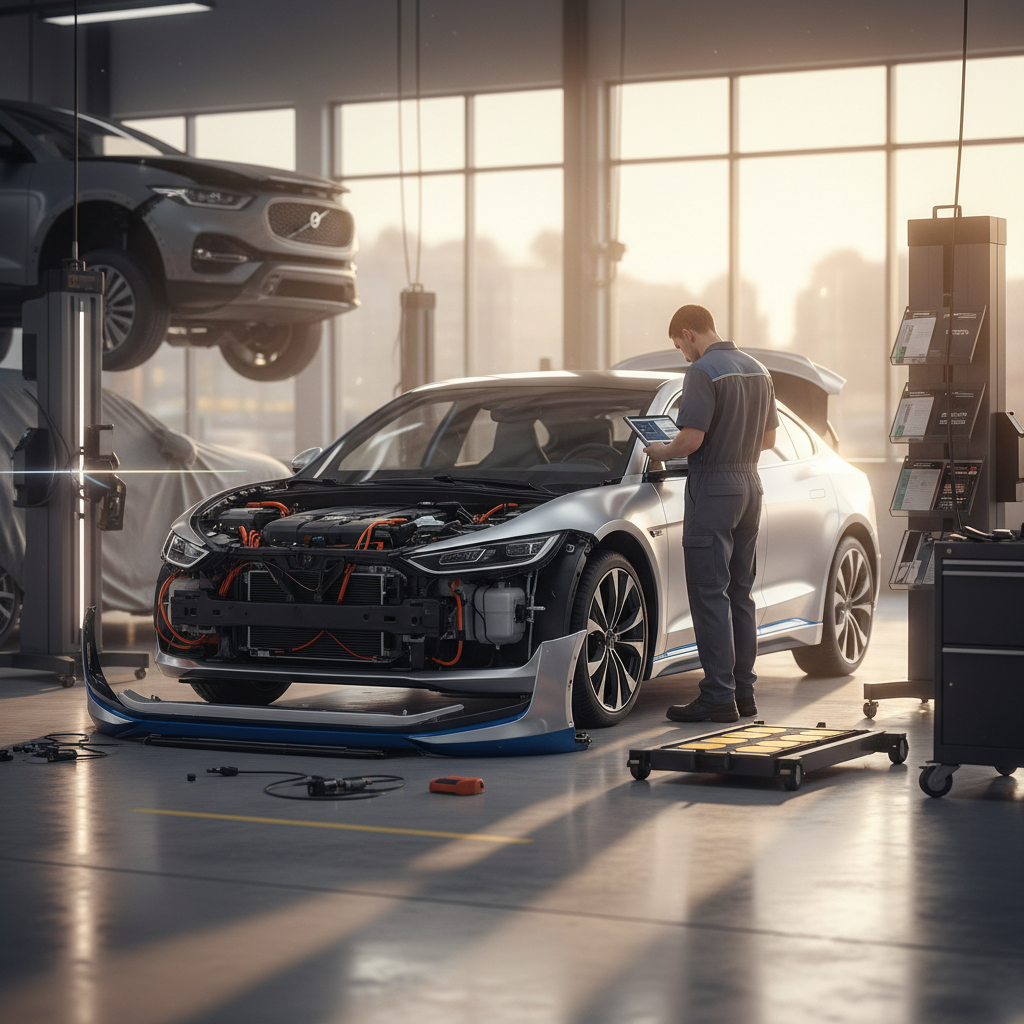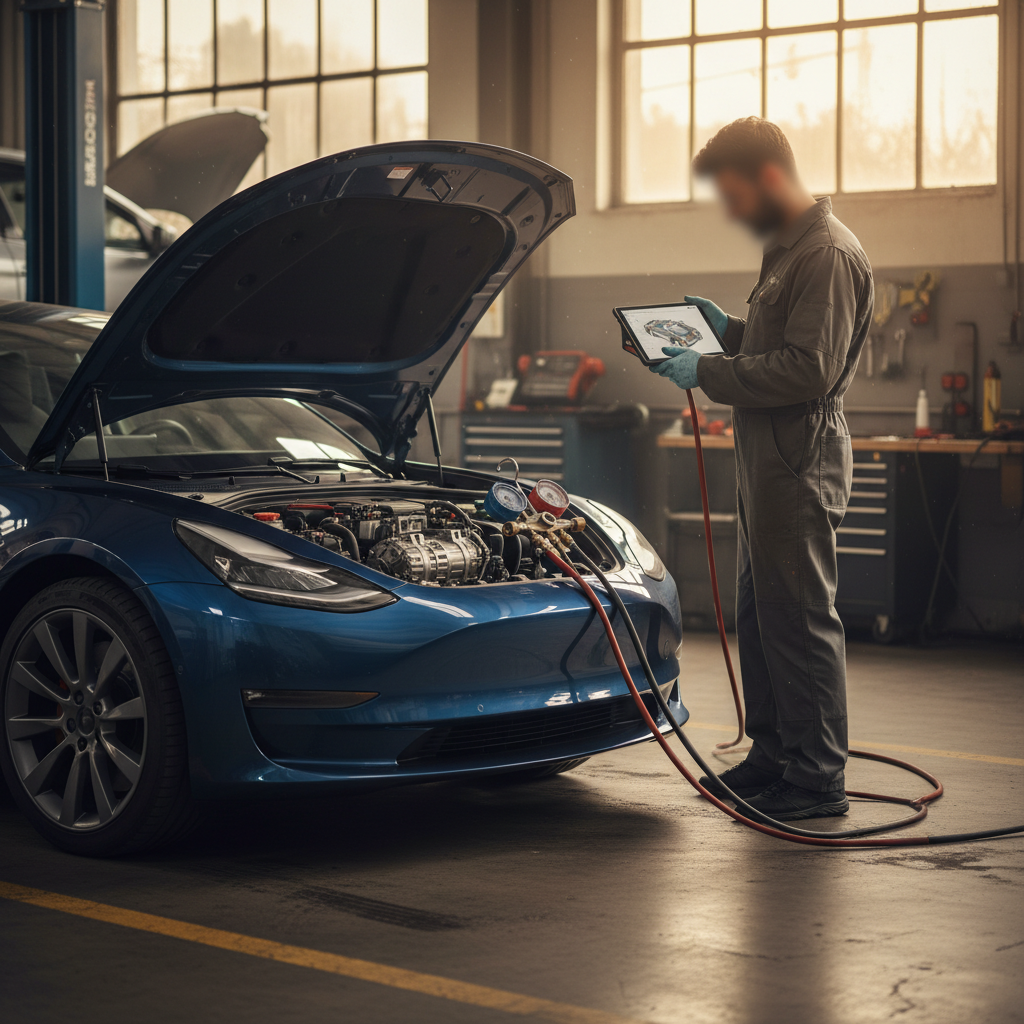If you’re hunting for the best second hand cars in 2025, you’re spoiled for choice, and also swimming in noise. Prices have cooled from the pandemic peak, used electric cars have quietly become bargains, and some ordinary-looking hatchbacks now hold value better than sports cars. The trick is matching the car’s strengths to the way you actually drive.
What “best” really means here
How to choose the best second hand car in 2025
Before you chase a specific model, get clear on the problem you want the car to solve. Is it a cheap commuter, a family hauler, or a way to cut fuel bills by going electric? The best second hand car for you is the one that does its job without nasty surprises, big repairs, scary depreciation, or range that doesn’t match your life.
Four pillars of a great second hand buy
Use these to judge any used car, gas, hybrid or EV
Reliability
Look for brands with a proven track record, Toyota, Honda, Subaru, Mazda for gas; Hyundai, Kia and some Teslas on the EV side. A trouble-free car is cheaper and less stressful.
Resale value
Certain models barely depreciate. Others fall off a cliff. Strong resale value protects you if you need to sell or trade in within a few years.
Running costs
Fuel or electricity, insurance, tires and maintenance all add up. A cheap purchase price can be a bad deal if it drinks gas or eats brakes.
Fit for purpose
City runabout, road-trip cruiser, kid hauler, pick the car that matches your daily reality, not just the rare vacation or Instagram fantasy.
Why brand and powertrain matter for used value
Quick picks: best second hand cars by driver type
Best second hand car picks at a glance
Start here if you want a short list, then dive deeper for details
Best all-round used compact (gas)
Honda Civic (2018–2022)
• Excellent reliability and strong resale value
• Comfortable, efficient, and still feels modern
• Good choice if you’re not ready for an EV.
Best cheap-to-run commuter (hybrid)
Toyota Corolla Hybrid (2020–2022)
• Sips fuel, rock-solid reliability
• Great for long commutes or rideshare duty
• Less complex than a full plug-in, easier to own.
Best affordable used EV hatch
Chevrolet Bolt EV (2019–2023)
• Big range for the money, especially post-battery recall cars
• Perfect for city and suburban driving
• Often far cheaper than a comparable gas hatchback now.
Best family SUV (gas/hybrid)
Toyota RAV4 (gas & hybrid, 2017–2021)
• Proven reliability, strong resale
• Hybrid models dramatically cut fuel costs
• Easy to resell when your needs change.
Best family EV crossover
Kia Niro EV & Hyundai Kona EV
• Practical range and roomy interiors
• Long factory warranties on many used examples
• Great bridge into electric ownership.
Best fun-yet-practical choice
Mazda 3 (2019–2022) or Ford Mustang (V8 or EcoBoost)
• Mazda 3: upscale interior, excellent handling
• Mustang: holds value surprisingly well as a weekend toy.
Don’t obsess over the exact year
Best second hand gas and hybrid cars for reliability
If you want predictability above all else, a simple gas car or non-plug-in hybrid from the right brand is still hard to beat. Independent data continues to show that Japanese brands like Toyota, Honda, Subaru and Mazda are standouts for long-term reliability and value retention.
Gas + hybrid second hand heroes
These models have strong reliability records and wide parts availability, ideal if you want years of low-drama ownership.
| Use case | Model years to target | Why it’s a great second hand buy |
|---|---|---|
| Cheap small sedan | 2018–2022 Hyundai Elantra | Modern safety tech, good value; cheaper than Japanese rivals but still solid. |
| Bulletproof commuter sedan | 2017–2022 Toyota Corolla / Corolla Hybrid | Legendary reliability, cheap to run; hybrid trims slash fuel costs. |
| Do-it-all compact | 2018–2022 Honda Civic | Comfortable, efficient, holds value incredibly well. |
| Compact SUV | 2017–2021 Honda CR-V | Roomy, efficient, and one of the most trusted family crossovers. |
| Hybrid family SUV | 2016–2019 Toyota RAV4 Hybrid | Excellent fuel economy and long-term durability. |
| Small SUV on a budget | 2018–2021 Kia Sportage | Often cheaper than CR-V/RAV4 used; good value if history is clean. |
| Fun sports coupe | 2016–2020 Mazda MX-5 Miata | Light, reliable, and shockingly good at holding value. |
| Small pickup | 2013–2018 Toyota Tacoma | Rugged, simple, and still top-of-class for resale value. |
Always confirm any used car’s condition with a pre-purchase inspection; even great models can be abused.
Don’t chase the very cheapest example
Why used EVs are 2025’s sleeper bargains
Here’s the quiet revolution of 2025: many used electric cars cost less than comparable gas cars, even before you factor in fuel and maintenance savings. Rapid new-EV price cuts, changing incentives, and range anxiety headlines have pushed down used prices, especially on early models.
- Electric motors and batteries have far fewer moving parts than engines and transmissions, so there’s no oil changes, timing belts, or exhaust systems to replace.
- Most modern EVs easily cover 150–250 miles on a charge, which is plenty for daily driving, school runs, and weekend errands.
- If you can charge at home, you effectively "refuel" overnight for the equivalent of roughly $1–$2 per gallon in many parts of the U.S., depending on electricity rates.
- In some states and utilities, time-of-use rates make overnight charging dramatically cheaper than daytime charging.
- Because early buyers paid more when these cars were new, you benefit from steep depreciation without inheriting outdated tech, over-the-air updates have kept many EVs fresh.
Important: incentives are changing
Best second hand electric cars to buy now
Not every used EV is a slam-dunk. Early short-range models or cars with slow fast-charging can be frustrating. But a handful of standouts combine solid range, decent charging speeds, and buyer-friendly used pricing. These are the models many savvy shoppers are hunting in 2025.
Standout used EVs for different budgets
Focus on range, charging speed, and warranty coverage
Chevrolet Bolt EV / EUV
Best for affordable range
• Typical used range: 230–259 miles (newer batteries)
• Great city + suburban car with a compact footprint
• GM’s battery replacements solved the recall issue on many cars, look for proof of completed recall work.
Kia Niro EV & Hyundai Kona Electric
Best practical small EV crossovers
• Range in the 200+ mile ballpark, depending on year and battery
• Roomier and more upright than a hatchback, great for families
• Long original warranties mean many used examples still have battery coverage.
Tesla Model 3
Best second hand EV for long-range road tripping
• Many versions offer 250–350 miles of range
• Access to Tesla’s Supercharger network can make road trips easy
• Over-the-air updates keep the car feeling modern even at 5+ years old.
Kia EV6, Hyundai Ioniq 5, VW ID.4
Best family-size EVs with fast charging
• Spacious cabins, big hatches, and strong safety ratings
• Some trim levels charge from 10–80% in well under 30 minutes on a fast charger
• Especially compelling when you find an ex-lease car with low mileage.

Where to focus your search
Price brackets: what you get for your budget
Used-car prices vary by state, mileage and trim, but you can think in broad brackets. These aren’t quotes, just realistic ballparks for what careful shoppers are finding in late 2025.
What your money buys in the used market
Approximate examples for shoppers in the U.S. market; your local prices may differ.
| Budget (USD) | Typical gas/hybrid options | Typical EV options |
|---|---|---|
| $8,000–$12,000 | Older Toyota Corolla, Hyundai Elantra, small hatchbacks; higher miles but still solid. | Early Nissan Leaf, older BMW i3, OK for short-range city use if cheap enough. |
| $12,000–$18,000 | Clean Honda Civic, Mazda 3, compact SUVs like older CR-V or RAV4 with moderate miles. | Earlier Chevrolet Bolt EV, some Hyundai Ioniq/Kona Electrics with higher miles. |
| $18,000–$25,000 | Newer Civic/Corolla, late-model compact SUVs, some hybrids like Corolla Hybrid or RAV4 Hybrid. | Newer Bolt EV/EUV, Kia Niro EV, Hyundai Kona EV; some early Tesla Model 3 and VW ID.4. |
| $25,000–$35,000 | Low-mileage late-model crossovers, well-equipped family SUVs, some luxury compacts. | Well-equipped Kia EV6, Hyundai Ioniq 5, VW ID.4, newer Tesla Model 3 and some Model Y. |
Always check local listings and remember that condition, mileage and accident history have a bigger impact than the sticker alone.
Battery health and range on a used EV
With a used EV, the battery is the heart of the car and the biggest thing buyers worry about. The good news: most modern EV packs age slowly if they’ve been charged and cooled properly. The bad news: a weak battery can quietly turn a 250-mile car into a 150-mile car, which might not fit your life at all.
How EV batteries age
- All lithium-ion batteries lose capacity over time, faster in very hot climates or when frequently fast-charged.
- Most modern EVs lose range gradually, not suddenly: think a few percent in the first couple of years, then slowing down.
- Unlike a gas engine, an EV battery’s health can be measured and documented, not guessed at from how it feels.
What you should ask for
- Evidence of battery health from a diagnostic report, not just the dashboard guess.
- Charging history, home charging vs. heavy DC fast charging on road trips.
- Any battery warranty claims, replacements, or software updates related to range.
This is exactly what a Recharged Score battery report gives you on a used EV, real, measured data instead of vibes.

Why a quantified battery report matters
Essential inspection checklist before you buy
Whether you’re buying from a neighbor or a national retailer, the inspection steps are the same. A clean Carfax alone doesn’t guarantee a good car; you want eyes, hands and a scan tool involved.
Second hand car pre-purchase checklist
1. Start with the paperwork
Verify the VIN on the car matches the title and service records. Check for salvage or flood branding and confirm there’s no outstanding lien. Incomplete paperwork is a walk-away moment.
2. Read the history, not just the headline
Pull a vehicle history report, but actually read it, pay attention to gaps in registration, repeated emissions failures, or multiple ownership changes in a single year.
3. Get a trusted mechanic (or EV specialist) inspection
For gas and hybrid cars, a traditional pre-purchase inspection is non-negotiable. For EVs, choose a shop or retailer that can read detailed battery, inverter, and charging-system data.
4. Check tires, brakes and suspension
Uneven tire wear can indicate alignment or suspension issues. Worn brakes or shocks are bargaining chips, but on some EVs big brake jobs are costly due to weight.
5. Test every feature
From adaptive cruise to heated seats, make sure every button you care about actually works. Electronics repairs, especially on luxury models, can get expensive fast.
6. Drive it like you’ll use it
Don’t just loop the block. Hit the highway, climb a hill if you can, and pay attention to noises, vibrations, and how the transmission shifts or the EV delivers power.
Avoid these common second hand traps
Financing and running costs: looking beyond sticker price
Two cars with the same purchase price can cost wildly different amounts to own. The interest rate on your loan, plus fuel or electricity costs, maintenance, and insurance, all feed into the real monthly cost.
Typical gas compact vs. used EV
- Gas compact: Lower upfront cost, but regular oil changes, more moving parts, and fuel that can swing wildly in price.
- Used EV: Maybe a bit more upfront, but far lower routine maintenance and stable electricity prices if you mostly charge at home.
- Over 5–7 years, total cost often favors the EV, especially if you drive a lot.
Leveraging financing smartly
- Shop for financing before you shop for cars so you know your budget.
- Shorter loan terms usually mean less interest and a better equity position if you need to sell.
- Some EV-focused retailers, including Recharged, offer financing tailored to used EVs and can factor in lower running costs when helping you choose a car.
Try total-cost thinking
How Recharged makes buying a used EV feel less risky
If this is your first EV, or your first major second hand purchase in a while, it’s normal to feel nervous. That’s exactly the gap Recharged set out to fill: make used EV ownership simple and transparent for everyday drivers, not just early-adopter tech fans.
What you get when you buy a used EV through Recharged
Designed to remove the biggest unknowns in second hand EV shopping
Verified battery health
Every car gets a Recharged Score Report with independent battery diagnostics. You see measured capacity, not just a guess, plus our experts’ explanation of what it means for your daily range.
Fair market pricing
We benchmark each vehicle against national data so you’re paying a market-correct price for the car’s mileage, condition and battery health, not a number plucked from the air.
EV-specialist guidance
From picking the right model to planning home charging, Recharged’s specialists walk you through the details by phone or online, so you’re not left decoding jargon alone.
Trade-in & delivery
Have a gas car to move on from? Recharged can give you an instant offer or handle it via consignment, then arrange nationwide delivery of your EV right to your driveway.
Fully digital experience
Browse, finance, sign and schedule delivery without setting foot in a traditional dealership. Prefer to touch and feel first? Visit the Recharged Experience Center in Richmond, VA.
Less guesswork, more confidence
Transparent reports, curated inventory and EV-focused support mean you spend more time choosing the right car and less time worrying about what’s hiding under the surface.
FAQ: best second hand cars in 2025
Your questions about the best second hand cars, answered
Bottom line: which second hand car is best for you?
If you crave maximum predictability and don’t mind buying fuel, a gently used Civic, Corolla, CR-V, RAV4 or similar Japanese stalwart is still a gold-standard choice among the best second hand cars. If you’re ready to cut running costs and most of your miles are local, a well-chosen used EV, Bolt, Niro EV, Kona EV, ID.4, Tesla Model 3, EV6, Ioniq 5, can quietly become the smartest purchase you make this decade.
Whichever way you lean, take your time, insist on clear records, and, for EVs, demand real battery data before you sign. If you want someone to do the heavy lifting on the electric side, diagnostics, fair pricing, trade-in and delivery, Recharged was built for exactly this moment in the market.



